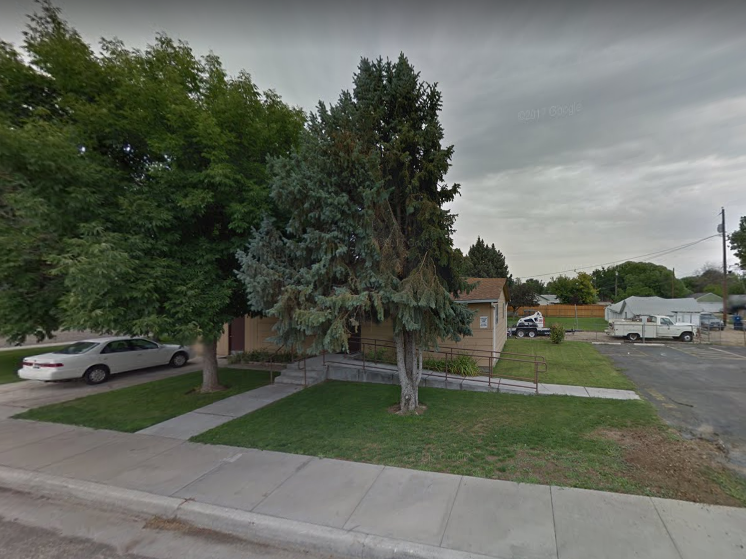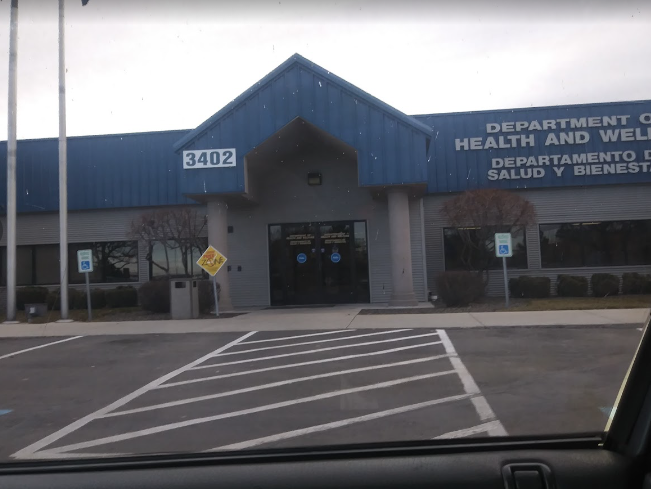Terry Reilly Health Services

Contact Details
-
Name:Terry Reilly Health Services
-
Address:1504 3rd Street North
Nampa, ID - 83653 -
Phone:208-345-1170
-
Email:
-
Instagram:
-
Website:
Description
There are currently state and federally funded or sponsored drug and alcohol treatment centers in the state of Idaho
Questions & Answers
Help others like you find out more about Terry Reilly Health Services. Do you know the answers to any of these questions? Contribute now and help others like you.
What kinds of care do they offer?
-
Mental health treatment
Includes interventions such as therapy or psychotropic medication that treat a person's mental health problem or condition, reduce symptoms, and improve behavioral functioning and outcomes.
-
Treatment for co-occurring substance use plus either serious mental health illness in adults/serious emotional disturbance in children
Housing for individuals recovering from substance abuse that is designed to provide a drug and alcohol-free living environment and appropriate support services to facilitate movement to independent living. Such housing includes transitional living, sober houses, sober living, recovery houses, and 3/4 houses.
What type of facility is this?
-
Community mental health center
Facility that (1) provides outpatient services, including specialized outpatient services for children, the elderly, individuals who are chronically mentally ill, and residents of its mental health service area who have been discharged from inpatient treatment at a mental health facility; (2) provides 24-hour emergency care services; (3) provides day treatment or other partial hospitalization services, or psychosocial rehabilitation services; (4) provides screening for patients being considered for admission to state mental health facilities to determine the appropriateness of the admission; and (5) meets applicable licensing or certification requirements for CMHCs in the state in which it is located. (https://www.cms.gov/
What types of treatment approaches do they offer?
-
Individual psychotherapy
Focuses on a patient's current life and relationships within the family, social, and work environments through one-on-one conversations with a therapist. The goal is to identify and resolve problems with insight, as well as build on strengths.
-
Couples/family therapy
Are two similar approaches that use discussions and problem-solving sessions facilitated by a therapist to help couples and family members improve their understanding of and the way they respond to one another. This type of therapy can resolve patterns of behavior that might lead to more severe mental illness. Family therapy can help educate about the nature of mental disorders and teach skills to better cope with the effects of having a family member with a mental illness, such as how to deal with feelings of anger or guilt.
-
Group therapy
Involves groups of usually 4 to 12 people who have similar problems and who meet regularly with a therapist. The therapist uses the emotional interactions of the group's members to (1) help them get relief from distress and (2) possibly modify their behavior.
-
Cognitive behavioral therapy
Involves recognizing unhelpful patterns of thinking and reacting, and then modifying or replacing these with more realistic or helpful ones. The therapy can be conducted with individuals, families, or groups, and clients are generally expected to be active participants in their own therapy.
-
Telemedicine/telehealth therapy
The ability for healthcare providers, working from a distance using telecommunications technology, to communicate with patients, diagnose conditions, provide treatment, and discuss healthcare issues with other providers to ensure quality healthcare services are provided. Other names used for this treatment approach are: e-medicine, e-therapy, e-psychiatry, and telepsychiatry.
-
Eye Movement Desensitization and Reprocessing therapy
Also known as ECT, uses low-voltage electrical stimulation of the brain to treat some forms of major depression, acute mania, and some forms of schizophrenia. This potentially life-saving technique is considered only when other therapies have failed, when a person is seriously medically ill and/or unable to take medication, or when a person is very likely to commit suicide. Substantial improvements in the equipment, dosing guidelines, and anesthesia have significantly reduced the side effects.
-
Smoking not permitted
Smoking is not allowed.
What type of setting is this location?
-
Outpatient
Describes patients who receive treatment services without an overnight stay at a treatment facility or hospital.
What types of payment or funding do they accept?
-
Cash or self-payment
Payment for treatment is made by the person directly, through cash or other means, rather than using health insurance.
-
Medicaid
A joint federal and state program that helps with medical costs for some people with low incomes and limited resources. Medicaid programs vary from state to state.
-
Medicare
The federal health insurance program for people age 65 and older and people with disabilities.
-
State-financed health insurance plan other than Medicaid
-
Private health insurance
-
Federal military insurance (e.g., TRICARE)
-
State mental health agency (or equivalent) funds
Funds designed to finance the cost of treatment for mental health conditions.
-
State welfare or child and family services funds
-
State corrections or juvenile justice funds
-
County or local government funds
Is any payment assistance available?
-
Sliding fee scale (fee is based on income and other factors)
Variable prices for services based on a person?s ability to pay.
-
Payment assistance (check with facility for details)
A program which helps low-income, uninsured, or underinsured patients who need help paying for all or part of their medical bills.
What language services are offered?
-
Sign language services for the deaf and hard of hearing
Service provided for persons who are deaf and hard of hearing.
-
Spanish
Staff counselors provide treatment in Spanish.
What specific groups are treated here?
-
Clients with co-occurring mental and substance use disorders
Facility has a program or group specifically tailored for persons with co-occurring mental and substance abuse disorders.
-
Criminal justice (other than DUI/DWI)/Forensic clients
Facility has a program or group specifically tailored for clients referred from the court/judicial system.
-
Seniors or older adults
Facility has a program or group specifically tailored for Seniors or older adults.
-
Children/adolescents with serious emotional disturbance (SED)
Facility has a program or group specifically tailored for children/adolescents with serious emotional disturbance.
-
Persons 18 and older with serious mental illness (SMI)
Facility has a program or group specifically tailored for persons with serious mental illness.
-
Young adults
Facility has a program or group specifically tailored for Transitional age young adults.
What ancillary services are offered at this facility?
-
Case management service
Helps people arrange for appropriate services and supports through a case manager who monitors the needs of clients/patients and their families and coordinates services, such as mental health, social work, health, educational, vocational, recreational, transportation, advocacy, and respite care, as needed.
-
Court-ordered outpatient treatment
Known by different terms in different states, such as, ?assisted outpatient treatment (AOT),? ?involuntary outpatient treatment,? or ?mandatory outpatient treatment.? Forty-four states permit the use of court-ordered outpatient treatment as a condition for persons with severe mental illness, who are too ill to seek care voluntarily, to remain in their community. Each state has its own civil commitment laws that establish criteria for determining when court-ordered treatment is appropriate for these individuals. (https://www.crimesolutions.gov/ProgramDetails.aspx?ID=228)
-
Education services
Locate or provide educational services from basic literacy through a general equivalency diploma and college courses including special education at the pre-primary, primary, secondary, and adult levels.
-
Family psychoeducation
Helps consumers and their families and supporters, through relationship building, education, collaboration, and problem solving to: 1) learn about mental illness; 2) master new ways of managing their mental illness; 3) reduce tension and stress within the family; 4) provide social support and encouragement to each other; 5) focus on the future; and 6) find ways for families and supporters to help consumers in their recovery.
-
Suicide prevention services
Include identifying risk factors; educating staff on identifying the signs of suicidal behavior and using methods to detect risk; and the assessment, intervention, and management of suicidal patients including treatment of an underlying mental or substance use disorder, and use of psychotropic medication, supportive services, and education. Hotlines help individuals to contact the nearest suicide prevention mental health provider.
What types of screening and assessment methods are used here?
-
Screening for tobacco use
Determines a client's use of tobacco products, such as cigarettes, cigars, pipe tobacco, or smokeless tobacco. It is generally recommended that providers screen for tobacco use on a regular basis by asking clients, as they are seen, about their current and past use of tobacco products and their exposure to secondhand smoke or tobacco.
What age groups are accepted here?
-
Children/Adolescents
Facility accepts children/adolescents (12 or younger) for treatment.
-
Young Adults
Facility accepts young adults (13-25) for treatment.
-
Adults
Facility accepts adults (26-64) for treatment.
-
Seniors
Facility accepts seniors (65 or older) for treatment.
What types of license or certifications or accreditation does this facility posses?
-
Federally Qualified Health Center
An entity may qualify as a FQHC if it meets one of these requirements (CMS, 2017): Is receiving a grant under Section 330 of the Public Health Service (PHS) Act or is receiving funding from such a grant and meets other requirements; Is not receiving a grant under Section 330 of the PHS Act, but is determined by the Secretary of the Department of Health and Human Services (HHS) to meet the requirements for receiving such a grant (i.e., qualifies as a FQHC "look-alike") based on the recommendation of the Health Resources and Services Administration (HRSA); Was treated by the Secretary of the Department of HHS for purposes of Medicare Part B as a comprehensive Federally-funded health center as of January 1, 1990; Is operating as an outpatient health program or facility of a tribe or tribal organization under the Indian Self-Determination Act or as an urban Indian organization receiving funds under Title V of the Indian Health Care Improvement Act as of October 1, 1991.
Who is responsible for the operation of this facility?
-
Federal Government
Is vaping allowed at this facility?
-
Vaping not permitted
How do I apply for admission at this location?
Have you been to this facility? What was your experience?
Is there a wait-list for treatment center?
Is any payment required?
Related Posts
IDHW Region 3
- Caldwell, ID
- 7.70 miles away

